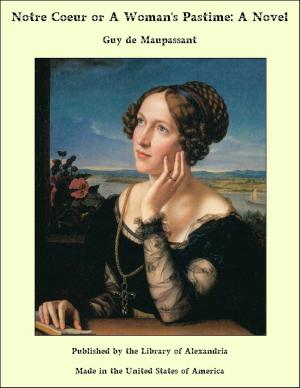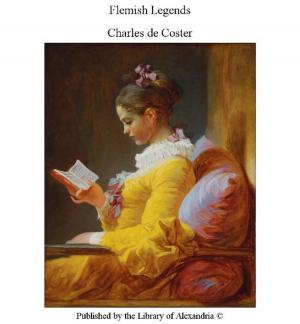Ancient Manners: Also Known As Aphrodite
Nonfiction, Religion & Spirituality, New Age, History, Fiction & Literature| Author: | Pierre Louÿs | ISBN: | 9781465538062 |
| Publisher: | Library of Alexandria | Publication: | March 8, 2015 |
| Imprint: | Language: | English |
| Author: | Pierre Louÿs |
| ISBN: | 9781465538062 |
| Publisher: | Library of Alexandria |
| Publication: | March 8, 2015 |
| Imprint: | |
| Language: | English |
Chrysis. She loved the name. The young men who came to see her called her Chryse like Aphrodite, in the verses they laid at her door, with rose-garlands, in the morning. She did not believe in Aphrodite, but she liked to be compared to the goddess, and she went to the temple sometimes, in order to give her, as to a friend, boxes of perfumes and blue veils. She was born upon the borders of Lake Gennesaret, in a country of sun and shade, overgrown by laurel roses. Her mother used to go out in the evening upon the Jerusalem road, and wait for the travelers and merchants. She gave herself to them in the grass, in the midst of the silence of the fields. This woman was greatly loved in Galilee. The priests did not turn aside from her door, for she was charitable and pious. She always paid for the sacrificial lambs, and the blessing of the Eternal abode upon her house. Now when she became with child, her pregnancy being a scandal (for she had no husband), a man celebrated for his gift of prophecy told her that she would give birth to a maiden who should one day carry "the riches and faith of a people" around her neck. She did not well understand how that might be, but she named the child Sarah, that is to say princess in Hebrew. And that closed the mouth of slander. Chrysis had always remained in ignorance of this incident, the seer having told her mother how dangerous it is to reveal to people the prophecies of which they are the object. She knew nothing of her future. That is why she often thought about it. She remembered her childhood but little, and did not like to speak about it. The only vivid sensation she had retained was the fear and disgust caused her by the anxious surveillance of her mother, who, on the approach of her time for going forth upon the road, shut her up alone in her chamber for interminable hours. She also remembered the round window through which she saw the waters of the lake, the blue-tinted fields, the transparent sky, the blithe air of Galilee. The house was covered with tamarisks and rose-coloured flax. Thorny caper-bushes reared their green heads in wild confusion, over-topping the fine mist of the grasses. The little girls bathed in a limpid brook, where they found red shells under the tufts of flowering laurels; and there were flowers upon the water and flowers over all the mead and great lilies upon the mountains.
Chrysis. She loved the name. The young men who came to see her called her Chryse like Aphrodite, in the verses they laid at her door, with rose-garlands, in the morning. She did not believe in Aphrodite, but she liked to be compared to the goddess, and she went to the temple sometimes, in order to give her, as to a friend, boxes of perfumes and blue veils. She was born upon the borders of Lake Gennesaret, in a country of sun and shade, overgrown by laurel roses. Her mother used to go out in the evening upon the Jerusalem road, and wait for the travelers and merchants. She gave herself to them in the grass, in the midst of the silence of the fields. This woman was greatly loved in Galilee. The priests did not turn aside from her door, for she was charitable and pious. She always paid for the sacrificial lambs, and the blessing of the Eternal abode upon her house. Now when she became with child, her pregnancy being a scandal (for she had no husband), a man celebrated for his gift of prophecy told her that she would give birth to a maiden who should one day carry "the riches and faith of a people" around her neck. She did not well understand how that might be, but she named the child Sarah, that is to say princess in Hebrew. And that closed the mouth of slander. Chrysis had always remained in ignorance of this incident, the seer having told her mother how dangerous it is to reveal to people the prophecies of which they are the object. She knew nothing of her future. That is why she often thought about it. She remembered her childhood but little, and did not like to speak about it. The only vivid sensation she had retained was the fear and disgust caused her by the anxious surveillance of her mother, who, on the approach of her time for going forth upon the road, shut her up alone in her chamber for interminable hours. She also remembered the round window through which she saw the waters of the lake, the blue-tinted fields, the transparent sky, the blithe air of Galilee. The house was covered with tamarisks and rose-coloured flax. Thorny caper-bushes reared their green heads in wild confusion, over-topping the fine mist of the grasses. The little girls bathed in a limpid brook, where they found red shells under the tufts of flowering laurels; and there were flowers upon the water and flowers over all the mead and great lilies upon the mountains.















